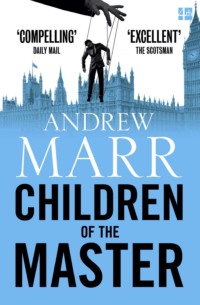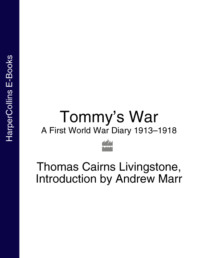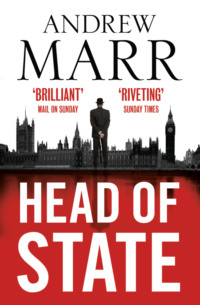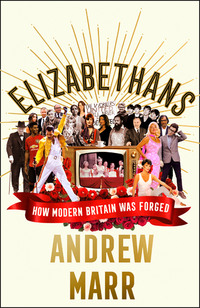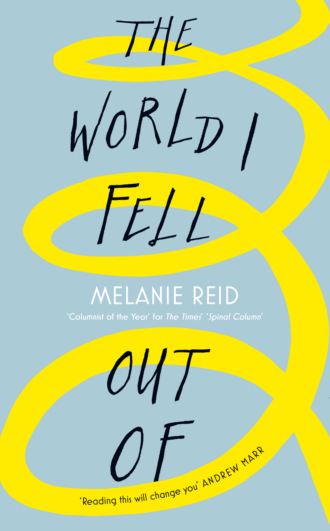
Полная версия
The World I Fell Out Of


Copyright
4th Estate
An imprint of HarperCollinsPublishers
1 London Bridge Street
London SE1 9GF
www.4thEstate.co.uk
This eBook first published in Great Britain by 4th Estate in 2019
Copyright © Melanie Reid 2019
Foreword copyright © Andrew Marr 2019
Cover design by Heike Schüssler
Melanie Reed asserts the moral right to be identified as the author of this work in accordance with the Copyright, Design and Patents Act 1988
Naomi Shihab Nye, excerpt from ‘Kindness’ from Words Under the Words: Selected Poems (Far Corner Books). Copyright ©1995 by Naomi Shihab Nye. Reprinted with the permission of the author.
T.S. Eliot, excerpt from ‘The Hollow Men’ from Collected Poems 1909–1962 (Faber and Faber). Copyright © T. S. Eliot.
Excerpt from ‘An Epilogue’ reprinted with the permission of The Society of Authors as the Representatives of the Estate of John Masefield.
A catalogue record for this book is available from the British Library
All rights reserved under International and Pan-American Copyright Conventions. By payment of the required fees, you have been granted the non-exclusive, non-transferable right to access and read the text of this e-book on-screen. No part of this text may be reproduced, transmitted, down-loaded, decompiled, reverse engineered, or stored in or introduced into any information storage and retrieval system, in any form or by any means, whether electronic or mechanical, now known or hereinafter invented, without the express written permission of HarperCollins.
Source ISBN: 9780008291372
Ebook Edition © March 2019 ISBN: 9780008291402
Version: 2019-02-22
Dedication
To Dave and Doug and all the people forced to live in the parallel world – I didn’t realise you were there until I joined you.
Contents
Cover
Title Page
Copyright
Dedication
Foreword by Andrew Marr
Prologue
CHAPTER ONE: Farewell Happy Fields
CHAPTER TWO: Put Your Finger in the Crow’s Nest
CHAPTER THREE: Swallow Diving from the Seventh Floor
CHAPTER FOUR: The Angels of Mons
CHAPTER FIVE: Pollyanna Syndrome
CHAPTER SIX: This Way Madness Lies
CHAPTER SEVEN: Aunt Averil and the Hidden Army
CHAPTER EIGHT: Home
CHAPTER NINE: A Lost Body
CHAPTER TEN: Just Like a Woman
CHAPTER ELEVEN: Of String Girths and Running Martingales
CHAPTER TWELVE: When Melly Met Nelly
CHAPTER THIRTEEN: In Bed with a Walrus
CHAPTER FOURTEEN: Am I Human or am I Dancer?
CHAPTER FIFTEEN: A Pocketful of Diamonds
Epilogue
Specialist Spinal Notes
Acknowledgements
About the Author
About the Publisher
Foreword by Andrew Marr
If a book makes you cry, properly cry, and if it makes you laugh, repeatedly, both quietly and loudly, then it’s safe to say this is probably a good book. This is probably a good book. Melanie Reid is already a star writer for anyone who regularly reads The Times. The horse-riding accident which rendered her tetraplegic gave her a ferociously hard, painful and difficult journey; and also, a seemingly inexhaustible subject for brutally self-revealing and often very funny columns. Mel, as her friends call her, is not an excessively inhibited person. She has a big laugh, and a generous, clear-sighted gaze. Here, in book form, you get the full story of her almost mundane accident and its awful consequences. It’s her story, of course, with her special particularities – her beautiful remote Scottish house, love of horses, gruffly charismatic husband, and so forth.
But it’s also a story for all of us, because we are all vulnerable. Life is incorrigibly random. Broken necks await us on school runs, uneven garden steps, family skiing holidays and at the shallow end of swimming pools; just as major strokes can happen, bizarrely enough, on rowing machines, at the basins in the hairdressing salons, or at either end of an international air flight. You never know. But, as Melanie puts it, our experiences of life are divided into an upper world of unconsciously elegant health and strength, of striding and stretching and elegant gestures we are barely aware of; and the lower, underworld, of the disabled, struggling to dress, and move, to eat and defecate. Anyone of us can be in the upper world, and then suddenly come on a completely ordinary sunny morning, tipped without a moment to complain or protest, into the underworld.
I am not as seriously disabled as Mel, but I have partial paralysis of my left leg, arm and hand and have had to go through, in a minor way, some of the tribulations that she has faced. Her description of the move from the warm cocoon of intensive care into the tougher rehabilitation wards of hospital, a place where the gym, bathroom, functional electrical stimulation and playdough all have a special meaning, returned me immediately to the wards in which I recovered from my stroke almost six years ago. She writes brilliantly about the characters of the different forms of nursing and medical staff, and the way black humour and grim solidarity knits together recovering patients still bemused about what has happened to their lives. (Though when this happens in Glasgow rather than London, the quality of humour is much, much higher.)
For tetraplegics, the road must be particularly rough. The rule she says is adapt or die: ‘A rehab ward in a spinal unit is like an under-strength factory floor: too few staff battling to a relentless timetable of feeding, medicating, washing, toileting, dressing and hoisting dozens of helpless carcasses into wheelchairs to get them to the gym.’ And then, if you’re doing well, come other multiple terrors and challenges of returning home and rebuilding life. Melanie Reid writes sensibly and well about thoughts of suicide, about depression, about the frustration of media-hyped ‘medical breakthroughs’ that never quite translate into helping you yourself; and unsparingly about the daily frustrations and humiliations of disabled life. For what it’s worth, I too have found myself screaming with rage from time to time having dropped yet another utensil on the kitchen floor.
So in that sense, these are really ‘Notes from the Underground’; and why would you want to read that? The answer is not only that you might find yourself in just the same place, but that Melanie is such a good guide in how to survive it. She knows that although the subject of disability might seem depressing and offputting, the courage it requires is exciting and inspiring. What she has gone through requires no less physical courage and determination than being imprisoned in a wartime prison camp – a parallel that hovers at times through the writing, but is no hyperbole. She rightly quotes the great English vicar-philosopher Sydney Smith on the importance of taking a short view of life: ‘Are you happy now?’ She understands the absolute importance of shunning the lethal beckoning poison-fairy of self-pity. As she says: ‘you learn, very slowly, to rediscover joy’.
On that journey, here, you’ll find some of the funniest and darkest comic scenes you have ever read, from a surreal encounter between the author in her wheelchair and a group of special needs adults, all of them on days out at a bowling alley, while they work out who is lowest on the pecking order. And then there is the scene in the hairdresser’s with the colostomy bag … But I will leave you to discover that for yourself. For what I think has saved Mel, apart from the love of strong people around her, is that she is such a natural and gifted writer. Early on she says, while still in the entrails of intensive care, ‘My sanity was … to make sense of it to myself … it was good copy.’ And so it bloody well was. The real reason we read is to get an injection of empathy; to help ourselves break out of the shell of our own experiences, and enter other human lives, so that we can understand this business of being alive just a little bit better. To do that we need really good writers on really big subjects. No, this is not probably a good book. It really is one, and reading it will change you.
Prologue
It was a cold, blustery Sunday in late March, ordinary in the way days always are before extraordinary things happen. We had slept late and it was mid-afternoon before we headed to the nearby village for provisions. By then, the sky looked unkind. As we reached the point where our farm track joins the public road, we glimpsed a tall man in hiking gear, carrying a large pack, striding purposefully away from civilisation towards the forests and hills. There was something about him that I couldn’t put my finger on, that made me notice him. He had a pleasant face but he looked – what? Anxious? Embarrassed? In a hurry?
‘Bit late in the day to be going that way,’ I remarked to Dave. Or maybe I just thought it. I can’t remember now.
Dropping down into the village, we passed a neighbour out inspecting his hedgerow. A non-gardener, wearing smart trousers and a ski anorak, poking suspiciously at the unforthcoming soil. We slowed to say hallo, holding the car on the brake, not committed enough to put the engine in neutral.
‘Just spoke to some crazy foreigner,’ he said. ‘Lost his way off the West Highland Way. I told him, I said, you’re miles off, and he wanted to know what he should do, but I just told him, you’ll need to head back the way you’ve come. Some people, eh?’
I waited in the car while Dave was in the shop. Rain started to blur the windscreen and I felt troubled. For the record, I’m no Mother Teresa. I don’t make a habit of picking up lame ducks and I’m ever so slightly impatient with those who do. But there’s something about travellers stranded on roadsides by breakdowns, or people who look lost, or in distress, that always makes me falter. Some primitive instinct, which I rarely act upon, makes me want to stop and offer help. Usually I dither, fail to act in case I look stupid, drive by and then regret it: the infinite frozen impulse, the wasted generosity, of the shy. The almost-nearly good Samaritan. Which, if you ask me, is more irritating than someone who lacks the impulse in the first place.
Being truly honest, I was still haunted by an incident from decades ago, when I was inside a tube station in London’s West End, rushing for the last train after a show. There was a young man slumped against the wall at the bottom on the stairs, causing people to crush and crowd in their haste to get past. He had a bloodied stump, one leg freshly amputated at the knee, and he looked utterly desperate. He held a piece of cardboard which said: ‘Please help me get back to Scotland’. And as I slowed, appalled, wanting to help, my companions grabbed me by the arms and hustled me onto a train. ‘C’mon! We haven’t time.’ And for thirty years I’ve regretted not stopping to help that boy, often wondering what his story was. Did he ever get home?
This time, though, was different. I knew that road back over the hills was long and exposed and I felt emboldened.
When Dave got back in the car, I said: ‘I think we should go and offer that guy a lift.’
‘What guy?’
‘The walker. The crazy foreigner.’
‘You are kidding.’ He turned to look at me as if I had sprouted two heads.
‘Why?’ He wanted to sit by the fire and read the Sunday papers.
‘Because it will be pitch-dark long before he gets back to where he started, let alone where he was supposed to be going. It’s pouring now and he’s ten miles off course in the middle of nowhere.’
‘He could be anyone. He could be some Eastern European axe-murderer.’
‘Imagine if it was you, or us.’
So we ignored our turning for home and carried on the hill road. We caught up with him toiling into the dusk, a dark figure on a lonely ribbon of tarmac, just before he began the ascent to the moor. He didn’t look like an axe-murderer.
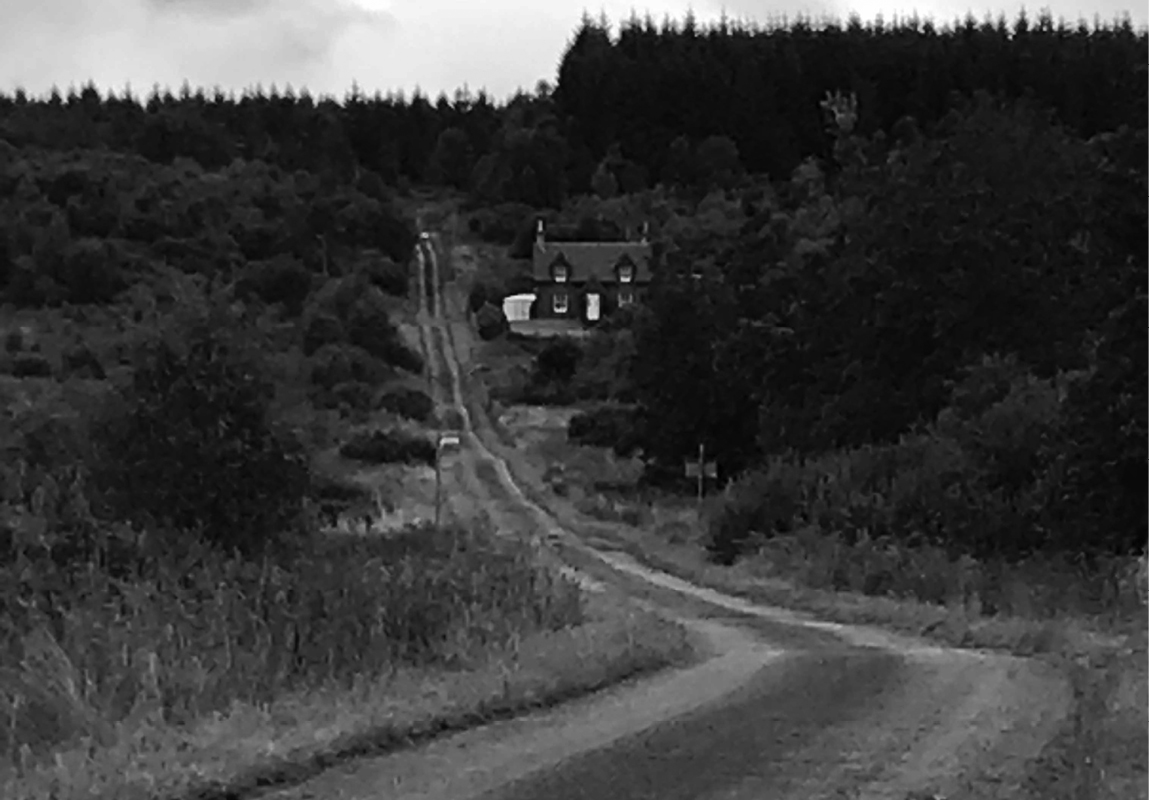
We picked him up at the bottom of the hill on the Moor Road.
‘Would you like a lift?’ we said. ‘We heard you were lost.’ Speaking slowly and clearly so he could understand.
He smiled and put his sodden pack in the boot and climbed into the back seat, dripping. He seemed profoundly grateful and he expressed it in English. Excellent English, in fact. Our crazy foreigner was a Canadian university philosophy lecturer, a handsome, intelligent man in his thirties with a gentle manner. He’d flown over to attend a conference at Aberdeen University on, and I think I remember this rightly, Thomas Reid, a little-remembered Scottish moral philosopher of common sense during the Enlightenment. With the conference over, our academic had had a few days to play with before his flight home, and had a fancy to try the long-distance footpath that wends from Glasgow into the Highlands. After leaving his B&B in the morning, he’d missed a turning and had walked all day in the wrong direction. Looking back now, I suspect he was a dreamy, erudite man who just wanted to walk in the mountains, rather than a practical map reader.
By the time we got him back to the village where he’d slept, it was lashing rain and almost dark. He was a day out of sync with his accommodation. We insisted on taking him on, by road, to where he had booked a bed for the night. He protested mildly, not disguising his gratitude. When we stopped, at the car park by the shores of Loch Lomond, he got out, retrieved his pack from the boot, and returned to the driver’s window. He leant down to thank us. We knew we would never meet again.
‘You’re good people,’ he said warmly. ‘Good things will happen to you.’
Five days later I fell off my horse and broke my neck.
CHAPTER ONE
Farewell Happy Fields
Who rides the tiger cannot dismount.
CHINESE PROVERB
I was happy, I do remember that, although those were the days when I rarely stopped long enough to appreciate it. Isn’t it always the same old story – that hindsight is the teacher who always arrives too late and says I-told-you-so? We’re always blissfully ignorant and complacent leading up to life-changing events.
So, how to pin down those hateful seconds which I will gnaw regretfully over for the rest of my life? One moment I was cantering towards a small-to-medium-sized cross-country jump, relishing the unity with my own, my very own, lovely handsome chestnut Champion the Wonder Horse, high on the hill and the thrill and the freedom and the wind in my face.
I was hearing the little girl inside me crying out, ‘Look at me, look at me!’ – the next moment I was pinned to the ground with a broken neck and fractured lower back. I was conscious throughout; I knew it was catastrophic. I said, ‘Ow!’ to myself when my face slammed into the turf, and then I experienced a blinding red flash and felt my whole body suffuse with a most beautiful, intense feeling of warmth; my own internal nuclear explosion; my own terrible mushroom cloud. In those seconds I was already aware that my life as I knew it had ended. Everything had internalised. The only place where I could survive was in my head. The little girl was dead. Her dreams were atomised. Dust. You stupid, stupid idiot, I heard the voice inside my head. Damn, why did I let this happen to me?
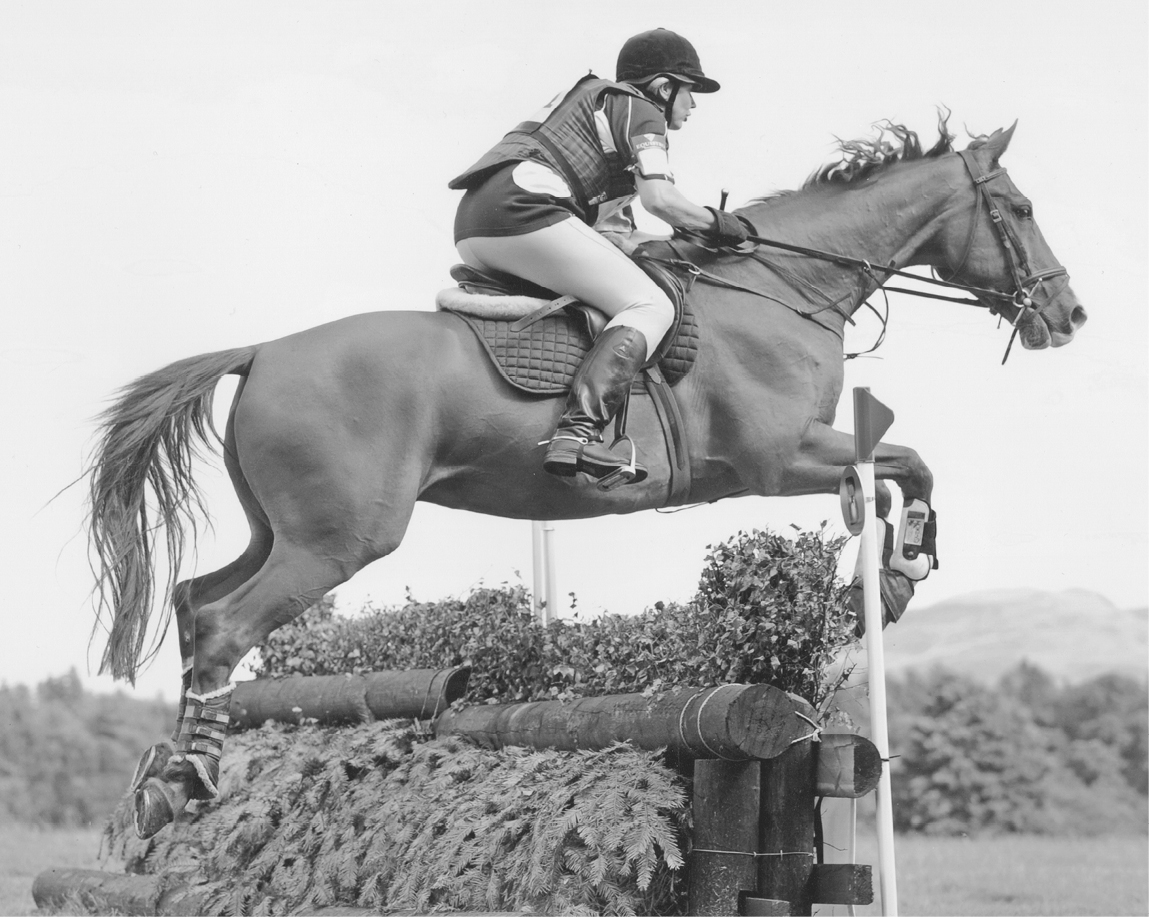
High on the hill and the thrill.
Here are the bald facts. My horse refused a piddly jump, on a piddly little British Horse Society instruction day for piddly middle-aged wannabes playing with their piddly ponies. Harmless, happy people like me, playing at the bottom end of a thrilling, dangerous sport; pretending that I was thirty-two when I was fifty-two. I can still taste bitterness in my mouth, even as I write this, at the unfairness, the bad luck, the everyday, non-earth-shattering mundanity of the whole thing. I was a competent, experienced rider on a competent, steady horse, being coached by competent, qualified people. But horses are horses; they belong only to themselves. That day he didn’t want to do it. Jumping stickily. He refused one practice fence. Jumped it the second time. We were still warming up. I doubly committed to go over another jump – ‘Kick on, throw your heart over’ as the old manuals taught – but he didn’t. At the take-off stride, he ducked out sharply, I carried on going. And with impeccable hubris, my pride made me try to stay on by gripping his neck, which was the worst possible thing I could have done. It meant my arms were not in front of me when I hit the ground, so I did a fairly steep, slow-motion head plant. My body and long, long legs pivoted over my neck. ‘It just looked like an ordinary fall,’ said a friend nearby, shrugging helplessly at the memory. A millimetre or two difference, I would have been fine.
How to pin down the moment when your body deserts you? When you are forcibly divorced from yourself? Wedged face-down, I can taste dry, gritty, late winter Perthshire soil, and I realise I can’t move anything but my right arm and my shoulders. My elbows flip-flop a little, like a seal. I reach down and touch my leg – the hand feels the leg, feels the texture of the riding breeches; the leg doesn’t feel the hand. Doesn’t feel it at all. I can’t quite believe it, but I know what has happened. It really has happened – the thing I’ve always tried to put to the back of my head. The thing I sometimes dwelt upon, ever since I read about how the Hollywood actor Christopher Reeve, a tall, well-built man, had toppled over his horse’s ears at a small jump and become paralysed from the neck down.
I manage to lift my shoulders a fraction, and turn my head. My left hand is lying out there, sprawled where I can see it. It responds a bit when I try to clench my fingers. This reassures me, oddly, and I put my face back down in the soil so I can think a bit. In a perfectly cold, logical part of my brain I’m utterly furious with myself. Arrogant enough to think it would never happen to me. But it has.
They have gathered round me by now, my friends, training-day organisers, the instructor. I can’t feel my legs, I tell them, please phone for an ambulance. The two nice elderly men from the St John Ambulance, first-aiders in attendance at the course, have arrived. I can hear the anxiety in their voices, their fractured breathing. They put an oxygen mask on me. ‘Lie still,’ everyone is saying bossily to me, like they’re rehearsing a training drill. ‘I am,’ I say grumpily. Then they start nagging me again: ‘Keep talking. Don’t fall asleep.’ But I am growing weary and want to close my eyes. ‘Please phone my husband. His number’s on my mobile, in the pick-up,’ I tell Helene, one of the organisers. Someone comes back. Says: ‘There’s an ambulance coming from Perth.’ I nestle wearily into the soil. I’m struggling to think straight, but I know I have to try and stay in control. ‘Phone for a helicopter too,’ I say. Strangely unembarrassed. I hear them, voices off, urgent, ordering a helicopter, giving directions. On stage meanwhile, my monologue is internal.
The brain was still functioning. I held lucid conversations with the paramedics from Perth, who had arrived and were preparing a neck brace. Then, still face down, I heard the helicopter, felt the shock waves of noise, an implacable clatter descending above us. At the time, I convinced myself there were two; could have sworn I heard someone say: ‘Here’s another helicopter.’ What a bloody waste, I remember thinking grumpily. Which was one way of expressing the whole catastrophe, although I didn’t see the irony until later. Later the Royal Navy air-sea rescue pilot who picked me up told me I was wrong; there was only one chopper. But that’s the tragi-comic essence of disaster: the everyday runs head-on into the bewildering.
They turned me, releasing me from the earth, slowly, carefully – I don’t know how many of them, I couldn’t feel their hands – onto a spinal board. I remember my vision spinning, the sky suddenly unbearably bright, but my head and neck were trussed with pads, so I could only look straight up, a small dinner plate of vision. My friend Katie was bending over me, telling me that I was going in a Sea King to the Southern General Hospital in Glasgow, where the main emergency specialities were. ‘Check out the winchman, he’s really dishy,’ she told me. ‘I’m coming with you.’ She always could be inappropriate, but I think she was trying to buoy me up. Of all the emotions, the pressing one in my head was annoyance: one, for causing all this fuss, and two, for not being able to sit up and enjoy my trip in a helicopter. Perhaps shock was setting in.
The inside of the chopper was furiously dark, crowded, vibrating and noisy. I felt sick and claustrophobic, strapped down. Panic started to rise. He was indeed dishy, the winchman, in the rare moments he crossed my limited field of vision. He’d taken off his helmet. Mostly it was his voice I hung onto. I told him that I couldn’t breathe and he leant over me, speaking softly but urgently to me above the noise: ‘Yes you can. Keep breathing for me, girl. We’ll be there in six and a half minutes. Do it for me.’ Pure Mills & Boon. It felt profoundly intimate, romantic – but also heart-splintering, because in that same instant, deep down, I knew with absolute certainty that never again would a man lean over me wanting to make love to me. Those paralysed thighs would never part. A brief wave of insight and intense loss washed over me. I can be that precise: in a few seconds, in that maelstrom of noise, my sexual identity died. Lust is only one letter removed from lost.
The crew of the Sea King from HMS Gannet, based at Prestwick, treated me as an emergency, aware that with a high spinal injury I could easily lose the power to breathe. The pilot requested a direct route and air traffic control temporarily cleared our path of commercial aircraft so that the helicopter could fly straight to the hospital. In those days, before the Southern General was rebuilt into a high-rise city, the helicopter pad was on the ground, just next to A&E. I remember being transferred to a trolley, remember trying to be polite and thank the RAF crew as they wheeled me away. Already, by then, there was the sense of detachment. This is just too bad; it can’t be happening to me, and I felt weary.
Things got a bit blurry after that. Time and cognitive slippage. Apart from everything else, it’s very hard to discern what’s happening when all you can see is a very small patch of ceiling. There was a warm, pretty female doctor in A&E who bent down to my ear and told me: ‘You’re going into resus now – it’s going to be very noisy, lots happening, but don’t worry,’ and I clung to her words and her humanity. She had blue eyes and blonde curls. A feeling of almost unbearable loneliness was settling upon me with the knowledge that I was absolutely on my own in this. Only in my brain was there sanctuary.


